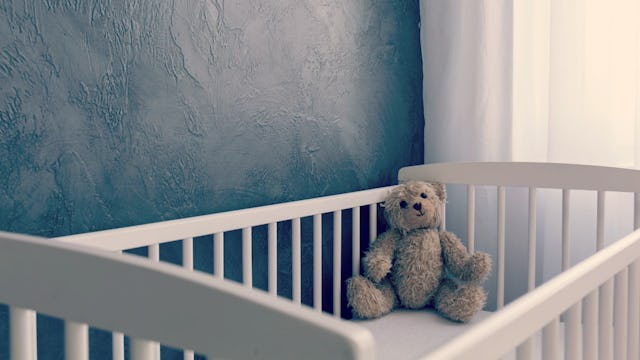After Loss: Moving On Is Very Different From Moving Forward

As the leaves swirled around my car, the balmy late November breeze swayed the almost-bare tree branches lining the street. My drive home included an insightful bit of wisdom from NPR. Speaking on loss and how we humans deal with it, director and writer Kenneth Lonergan proposed thought-provoking words. In reference to the main character in his upcoming movie, Kenneth’s thesis was simple: Moving on is very different from moving forward.
Moving on from a loss can be less desirable than moving forward. Moving on implies you have forgotten the incident, the loss, the grief. It suggests the loss no longer holds an importance to you that it once did, although it probably still should. It implies that your life will go back to “normal” and all will be just as it was. It inserts a triviality. Yet when we suffer loss, none of these things truly happen.
The biggest loss of my life came when I was 29. Pregnant with my first child, my husband and I were elated to be having a baby. We did not realize that sometimes happiness is not the outcome. Sometimes a pregnancy has issues. Instead of the joy and optimism in one’s future, there is instead a dread, a grief, and a dismay so profound it physically hurts. Some pregnancies end in a loss so tragic, and so unexpected, that the combination hits one’s heart like an ice pick cracking through a glacier.
After Sophia was born at 20 weeks, she lived for an hour and a half. We clung to our moments together as a family treasuring her tiny face, her fragile fingers, her shallow breaths, her peacefully closed eyes. The second she was born, our pregnancy ended. But we did not move on from it. We moved forward — with Sophia, in the hospital room, as a family of three.
The days following her death, we had heavy decisions to make: cremation or burial, wording for the obituary, which urn would be Sophia’s ultimate resting place. Fighting the tears — and at times relenting to downright sobs — we carried the grief with us. We toted the pain, embraced the love we held for our daughter, and held each other up through the lowest days of our lives. All the while, we brought Sophia with us as we forcefully pushed forward.
Life around us continued — work piled up in our offices, furniture begged to be dusted, carpets were desperate for a good vacuuming, our ever-loving pug pleaded for us to play. The sadness often drowned out the joy. Blissful memories of when we did not know such profound loss were lost like tiny rowboats bobbing along the heavy waves of the Atlantic Ocean. We carried on through the motions of daily life, but struggled to feel. Fighting to find ourselves, we battled to again find meaning in our lives. Yet, balancing the grief with the gentle optimism that someday we will be less sad moved us forward.
Sophia’s urn sat on our bedroom dresser, securely protected in a velvet box. From her doll-sized Moses basket, she spends each night close by. The months following her passing, my sister crafted a memory book filled with the only proof we have of a pregnancy gone wrong. On my right ring finger, a silver-banded ring bears the birthstone of all four of our babies: Sophia, two others who did not ultimately make it past the first trimester, and one who became our gleeful rainbow baby Evelyn. Every morning my husband closes the clasp of his silver chain, securing the dog tags that carry the minuscule footprints of both Sophia and Evelyn. Every night, he tenderly places it on the nightstand beside him.
Our jewelry often catches the watchful eye of our observant toddler. As she touches the shiny stones and tugs at the links with a force that nearly rips the chain off his neck, we speak to her of her big sister. We tell her how she is loved, how Sophia looks out for her little sister, how she now has a guardian angel.
Life carried on with or without us; we chose to tag along. We continue to go to work, make dinners, pack diaper bags, tend to the yard work, shovel the snow, celebrate holidays, go on weekend getaways, and visit family. Through it all, we move forward toting our grief along with our fond memories of our daughter. While the suitcase in which the grief fits has shrunk from oversized roller bag to small carry-on, it reliably stays by our side.
Most days, my thoughts of Sophia bring a peaceful love to my heart, yet there are triggers that still bring out the ugly cries. Poignant words hit my soul in ways I could not have dreamed of before Sophia. Carrying her through my life, she enlivens my empathy. Moving forward, we find a way to allow both our ever-evolving lives and Sophia to coexist. Moving forward, we create a world in which both happiness and heartbreak can occur. Moving forward means we get the best of all our human emotions.
This post originally appeared on Still Standing.
This article was originally published on